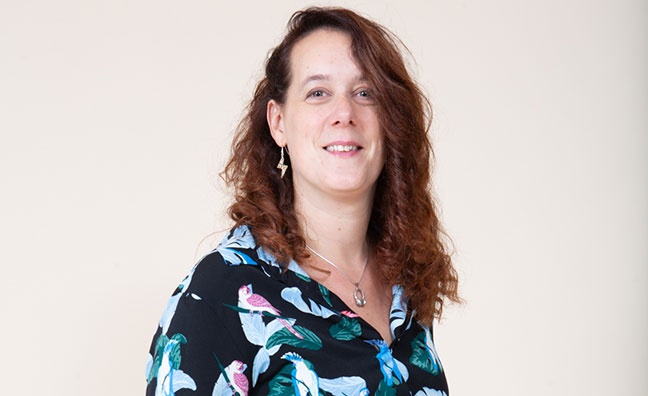Gee Davy has told Music Week that the Association Of Independent Music (AIM) is “redoubling its efforts, rather than grandstanding” in the music industry’s fight against racism.
Davy is head of legal & business affairs at AIM and was inducted onto the Music Week Women In Music Roll Of Honour last year. The exec featured in our Indie Takeover issue earlier this month and was part of the team behind the online-only AIM Awards 2020.
In conversation with Music Week Davy discussed 2020 so far, touching on the Black Lives Matter movement, the push for an equal and diverse music industry and the coronavirus pandemic.
Read on to find out how AIM plans to be at the forefront of the push for change in the independent sector and beyond.
How does it feel to be working in the indie sector in 2020?
“This has been without doubt the most intense year for independents since I joined the industry. In some areas, the Covid situation has provided a moment for independents to shine and show how creative and nimble they are – releasing new music while the majors postponed and delivering new content the public were craving while other culture and sport closed during lockdown. I have certainly spent more time talking to government than ever before – petitioning for worker support, getting financial assistance to the whole spectrum of businesses who need it, and helping draft the guidance on reopening rehearsal and recording studios and enable music video shoots to restart. It was also amazing to see the breakthrough into the mainstream of Black Lives Matter and be in a moment in which the independent sector re-evaluated itself with lots of voices pushing for positive change, lots of honesty and a ‘challenge accepted’ mentality alongside some tough questions for ourselves about how to make this a lasting conversation and result in real action and systemic change on race and gender in particular.”
We recognise that we are well-meaning but that we have not achieved enough in the past
Gee Davy, AIM
What steps is AIM taking to create a more diverse and equal industry?
“We take these issues very seriously and our response has been to redouble our efforts, rather than to grandstand. We recognise that we are well-meaning but that we have not achieved enough in the past and up to this point. Whilst we have worked hard on social justice and taken the lead on issues such as gender parity, we see that in this moment there is all the more energy and potential to accelerate that change and get much further, much more quickly. We embrace that challenge – the sector is mobilised and ready to enact change across issues or race, gender, identity and other aspects of diversity and inclusion. This is not about getting glory or trying to look good, it is about effecting genuine and substantive structural change. We’re acutely aware of how much more we need to do to be genuinely representative of the community we exist to serve and support – across our board, our team and our membership, and we are working actively across each of these. AIM is a community of entrepreneurs and we will be doing much more to build bridges and share knowledge with communities of emerging entrepreneurs that are currently under-represented.”
What are the priority areas in the indie world at the moment?
“The sector is leading the way in releasing diverse music, building diverse businesses and supporting a diverse workforce – although we need to reflect on and learn from reports such as Women In CTRL’s Seat At The Table, authored by AIM Board Director Nadia Khan. It made for uncomfortable but necessary reading. We need to keep the market open, we are worried about the majors swooping in to buy indies weakened by the crisis at deep discounts which would lead to unhealthy consolidation. The potential for further consolidation in the distribution landscape is also worrying as it could lead to gatekeeping and lobbying power in the hands of just a few – diversity and competition is needed to help keep a more level playing field. High unemployment is a big concern that may well mean less money to pay for creativity. Let’s hope that music remains a counter-cyclical sector if things do remain tough into the longer term. Finally, we must take care not to lose sight of the climate emergency. This presents us with micro as well as macro challenges – the wider creative industries and the music sector must work together to try to influence governments to prevent catastrophe and make our own changes for a more sustainable future.”
Read the full report on independent music in 2020 here.
PHOTO: Jenn Five









